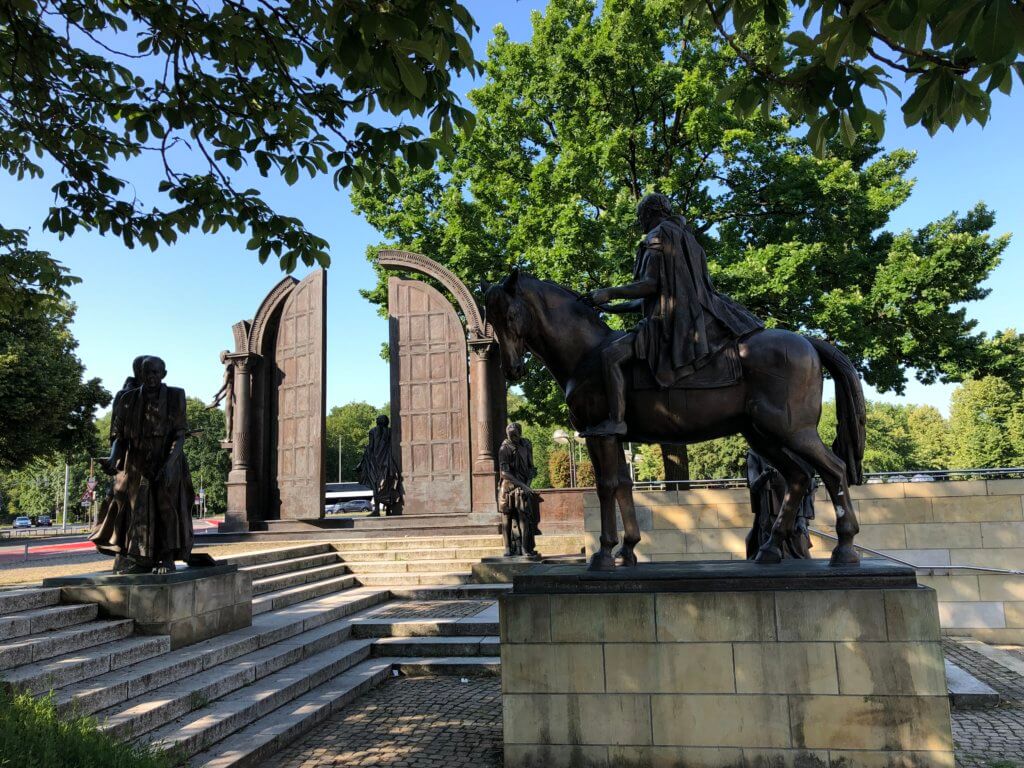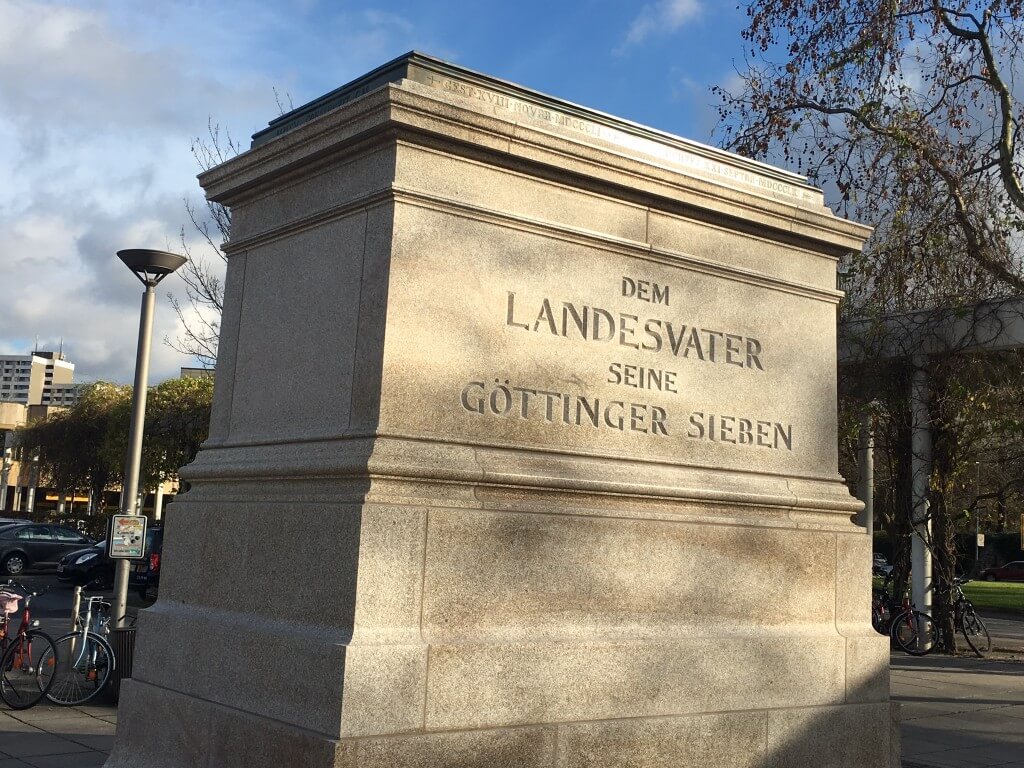You can’t get to Göttingen, Germany without learning something about the Göttinger Sieben or Göttingen Seven. In the year 1833 the Kingdom of Hannover received a new and more liberal constitution. By that time the kingdom was ruled in personal union with Great Britain – a combination that existed for 123 years after Queen Anne died without children in 1714. In the year 1837 Queen Victoria became queen of Great Britain but as in the Kingdom of Hannover only male successors where accepted the personal union broke.
New regent in the kingdom became Ernest Augustus (the one whom a statue in front of the railway station of Hannover is dedicated to). As one of his first steps he revoked the liberal constitution. Seven professors of the university of Göttingen (including the Brothers Grimm) protested against this:
- Wilhelm Eduard Albrecht
- Friedrich Christoph Dahlmann
- Heinrich Ewald
- Georg Gottfried Gervinus
- Jacob Grimm
- Wilhelm Grimm
- Wilhelm Eduard Weber
They received no support from the leadership of the university and Ernest Augustus fired them. Three of the seven also had to leave the kingdom: Friedrich Dahlmann, Jacob Grimm and Georg Gottfried Gervinus. But the received support from the people and the university was suffering from the loss of these gentlemen.


Today the central square of the university is named ‘Platz der Göttinger Sieben‘ and an abstract sculptur by Günter Grass can be seen there. Additionally there is a controversial memorial on the place in front of the main railway station of Göttingen and a memorial next to the Landtag in Hannover.
